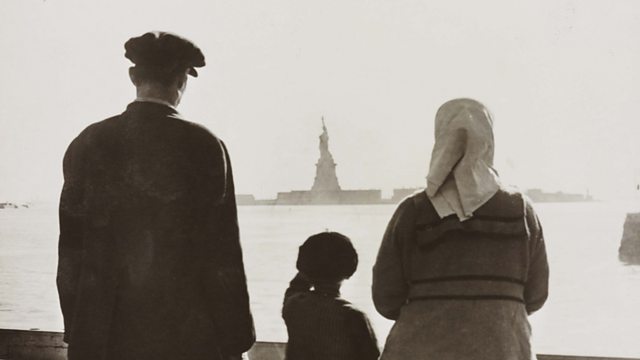The US and the Holocaust (Beginnings-1938) episode 1: How the land of immigrants faced the reality of Holocaust refugees. Did the nation fail to live up to its ideals? Powerful documentary by Ken Burns, Lynn Novick and Sarah Botstein. After decades of open borders, a xenophobic backlash prompts the United States to pass laws restricting immigration. In Germany, Hitler finds support for his anti-Semitic rhetoric, and the Nazis begin their persecution of Jewish people, causing many to flee to neighbouring countries or America. Franklin D Roosevelt and other world leaders are concerned by the growing refugee crisis, but they fail to coordinate a response.
Jewish immigration to the United States has a long and complex history. Beginning in the late 19th century and continuing through the mid-20th century, millions of Jews fled persecution and economic hardship in Europe and other parts of the world to start new lives in America.
At first, many Jewish immigrants faced discrimination and anti-Semitism, but they quickly established themselves in a variety of industries, including manufacturing, retail, and entertainment. They also became active in politics and civil rights movements, playing a significant role in the development of the labor movement, the fight for civil rights, and the formation of Israel.
The US and the Holocaust (Beginnings-1938) episode 1
The Immigration Act of 1924
The Immigration Act of 1924, also known as the Johnson-Reed Act, was a US federal law that greatly restricted immigration to the country. The act was designed to limit the number of immigrants coming to the US from Southern and Eastern Europe, as well as Asia. It established strict quotas based on national origin, and effectively barred many non-white immigrants from entering the country. The act remained in effect until it was repealed by the Immigration and Nationality Act of 1965, which ended the national origins quota system and opened the door to increased immigration from non-European countries. The Immigration Act of 1924 is widely seen as a discriminatory and xenophobic piece of legislation, and its legacy continues to be felt in US immigration policy today.
US and the Holocaust
The Holocaust, which took place during World War II and resulted in the genocide of approximately six million Jews and millions of other minorities, is considered one of the darkest chapters in human history. The United States played a complex role in this tragedy, both in terms of its actions and its inaction.
In the early years of the war, the US was hesitant to get involved in the conflict and adopted a policy of isolationism. While many Americans were sympathetic to the plight of European Jews and other minorities, there was also significant anti-Semitism in the US, and some politicians and leaders actively opposed accepting Jewish refugees. Despite this, some Americans took action to try to help those affected by the Holocaust. For example, the War Refugee Board was established in 1944 to aid Jews and other minorities in Europe. Additionally, some individual Americans, such as Varian Fry and Raoul Wallenberg, risked their own lives to rescue Jews and other persecuted people.
However, many argue that the US could have done more to help those affected by the Holocaust. For example, the US government was slow to respond to evidence of the atrocities being committed, and refused to bomb concentration camps or take other direct action to intervene. Today, the US is home to the largest Jewish community in the world, and there are ongoing efforts to remember and learn from the lessons of the Holocaust. However, the complex legacy of the US’s response to the Holocaust continues to be a topic of debate and discussion.




